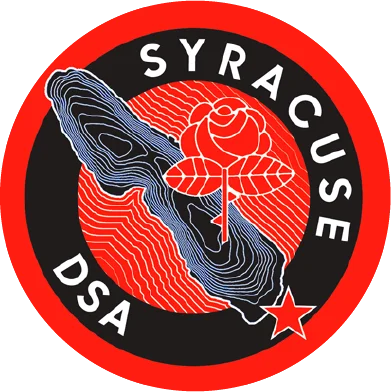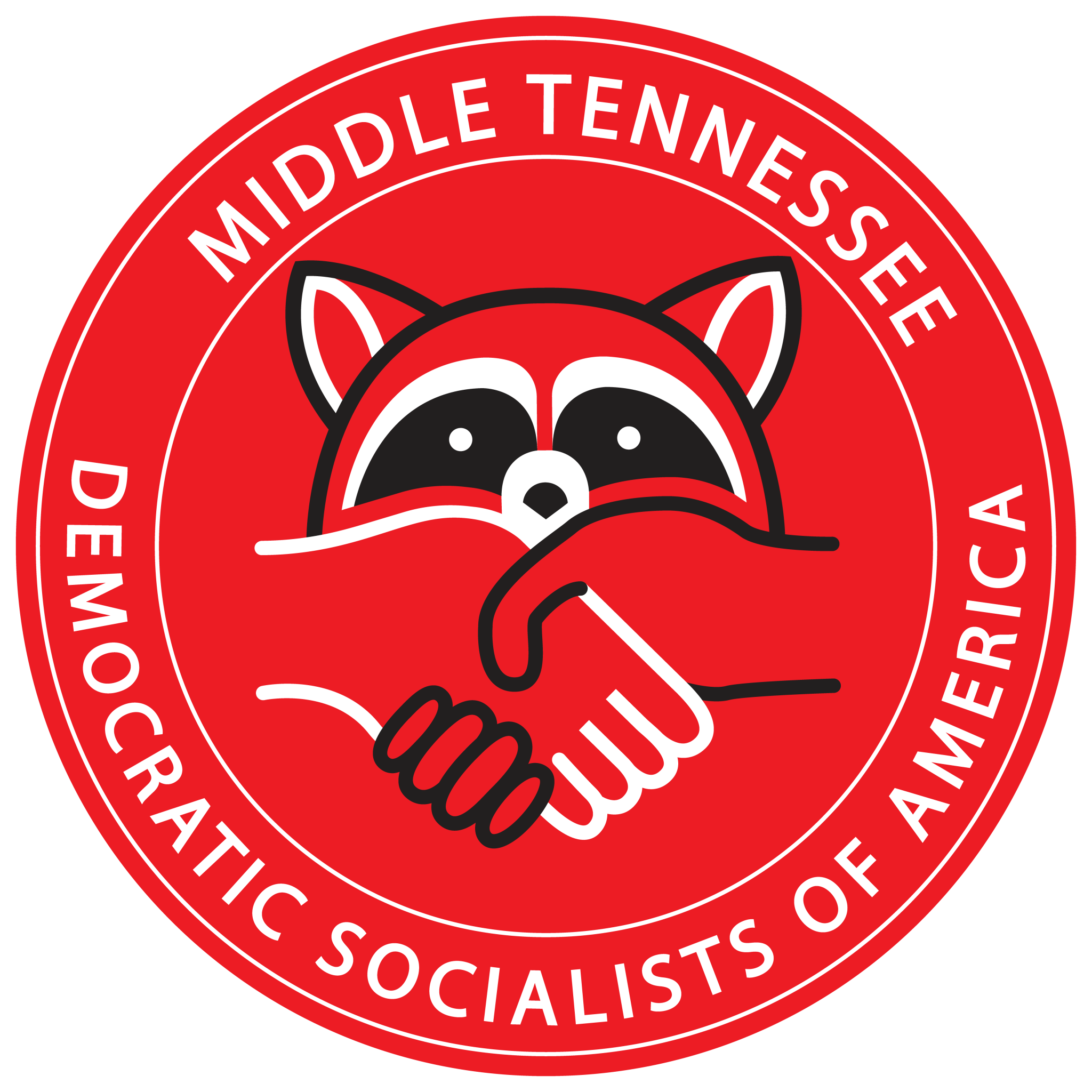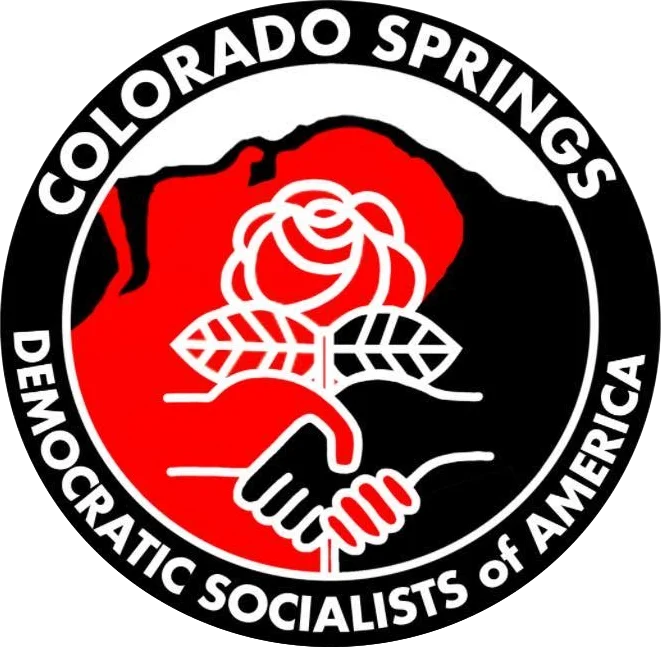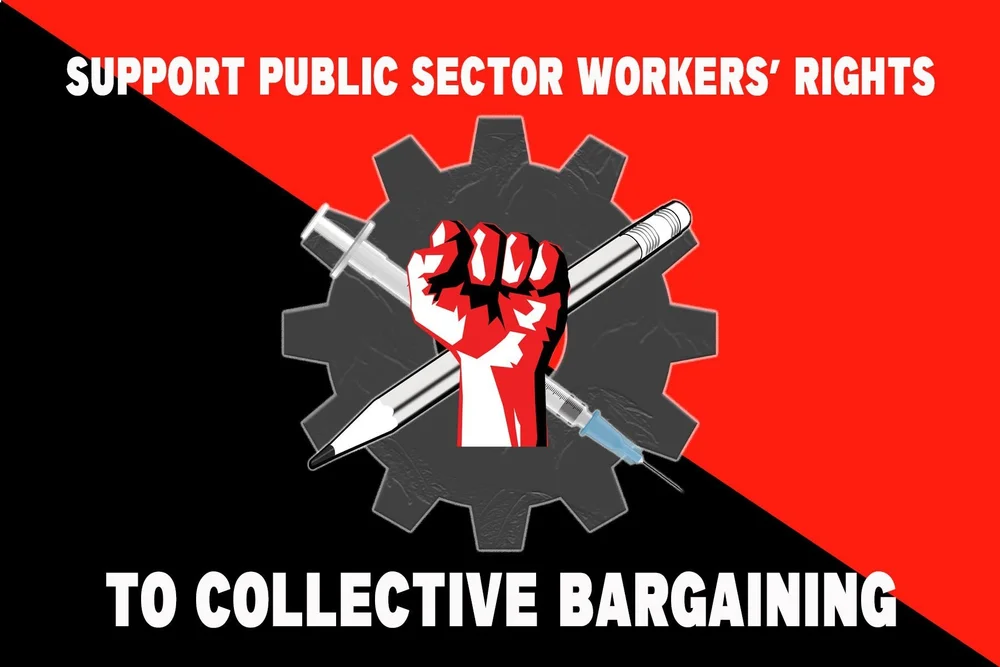

Solidarity with Buffalo
Our condolences to all who were close to Roberta Drury and all the others murdered by the white supremacist at a Buffalo grocery store. The attack on the Black community of Buffalo is horrific.
We must oppose the spread of racist ideas, racist conspiracy theories, racist myths of history, and the implementation of racist political and economic policies, which all reinforce each other. Whether the killer technically acted alone or not, he was taught and supported by large sections of the US and global political spectrum. We must elevate movements that empower and unite people of the multiracial working class and build relationships of solidarity, especially those targeted by the Right, such as Black and Brown communities, LGBTQ+ people, disabled people, and women.
Please support by donating to mutual aid and mental health support efforts organized by Black Love Resists in the Rust in Buffalo who are partnering with community organizations to link people to and pay for ongoing mental health services.


For the Many with Kristen Gonzalez


Climate Justice Victory – Shutting Down Colorado’s Dirtiest Coal Plant
Denver DSA has been fighting for over a year alongside frontline communities to shut down Colorado’s coal plants and make the just transition to clean, renewable, community-owned electricity. The dirtiest of these coal plants is now officially slated to close no later than January 1, 2031. It’s a huge victory and a testament to the power of mass organizing.
The Coal Plant That Never Should Have Been Built

The Comanche 3 coal plant is the largest polluter in Colorado. Offensively named after an indigenous nation that extractive capitalism itself waged genocide against, this plant has been met with opposition since it was proposed back in 2004.
Despite protests, lawsuits, outcry at public hearings, and the clear scientific evidence that a new coal plant would worsen the already serious climate crisis mounting, Xcel Energy moved forward with construction, with the blessing of the Public Utility Commission (PUC).
The plant went online in 2010 and Xcel hoped to run it until 2070. The massive facility has been pumping tons and tons of carbon dioxide and toxins into the atmosphere. The nearby working class, Latinx community in Pueblo bears the worst of the effects with many residents suffering from respiratory diseases.

The fight to close this plant has never let up. Over the past year, the EcoSocialist committee has been fighting in coalition with others to have the PUC do what it should have done from the beginning – shut this coal plant down.
People Power Forces Xcel to Concede
Thousands of Colorado residents wrote into the PUC demanding that the coal plant be shut down as soon as possible. Dozens of Pueblo residents testified at a public hearing. Over 100 people testified at the final statewide hearing demanding the same.
Xcel took notice. First they offered a 2040 closure date. Then, following the Pueblo hearing, tried making a backroom deal for a 2035 date. We kept fighting, insisting that the plant be closed by at least 2030, if not sooner.
The PUC expressed skepticism around the 2035 Xcel proposal. Another rally kept the pressure on the PUC to do the right thing.
Finally, on April 26, 2022 Xcel came back to the negotiating table and agreed to close the coal plant no later than January 1, 2031.
The Fight Continues to Close the Comanche Coal Plant As Early As Possible
While the newest deadline is great news and could not have happened without thousands of people standing up to Xcel’s profiteering, the fight is not over. This coal plant never should have been built in the first place. We’re experiencing unprecedented drought, wildfires, and heatwaves. Frontline communities still breath the poisoned air and every day more carbon is added to the atmosphere we’ll then need to draw back down.
We’ll take this opportunity to celebrate together with the many others fighting to get to this point. Then we’ll regroup and decide the best path forward to shut down coal once and for all and usher in a new clean and affordable energy system.
To get involved, email the EcoSocialist Committee at ecosoc@denverdsa.org


Fight Like Hell For The Living: Workers' Day Special 2022
International Workers’ Day is right around the corner on May 1, and this year it comes among a huge upswell of worker-run unionism and labor militancy. From Delta Airlines to Amazon and Starbucks to local shops like Film Forum here in NYC, workers are coming together and fighting for their rights on the job.
Here at Revolutions per Minute, we are organizers, and organizers know that all labor stories start with workers talking to each other – on the job, at home, and in the streets. For our 2022 Workers Day Special, members of the RPM collective have each interviewed a worker in our own lives about their work, their struggles, and their joys. We’re speaking to the people we love, respect, and work with, in hopes that you’ll do the same this Workers’ Day and every day!
Lee Ziesche interviews her life partner Miles Bartlett on his 20 years' experience as a back of house kitchen worker.
Chris Carr interviews his UAW brother and worker at the same university, Zach Valdez. Zach is an administrative assistant and UAW Local 2110 steward. Learn more about this local's contract fight at @2110for1M1V and sign their petition here: https://actionnetwork.org/petitions/fair-contract-now-support-local-2110-staff.
Desiree Joy Frias interviews her best friend and godmother of her son, Jamese Lamb, on her experience as a graduate student medical worker.
Amy Wilson interviews her labor movement comrade and friend, Kayleigh Truman. Kayleigh is a second-generation stagehand working Broadway, off-Broadway, and Madison Square Garden, and running for leadership in IATSE Local One to change the culture of their union.


Trains, Budget Pains and Chigozie Onyema
Tonight we are joined live from New Jersey by Chigozie Onyema, a North New Jersey DSA endorsed candidate for City Council in Newark. We will also be speaking to Rebecca Martinez and Julian Mesri from the Radical Theatre collective about their production of Songs About Trains.
We also caught up with State Senator Julia Salazar to talk to her about the New York State budget, why she voted against it and what socialist in Albany are fighting for with just six weeks left in the legislative session.
For more info on Chigozie Onyema visit: www.chigozieonyema.com

Challenging Troy’s RECODE Proposal
Part I: Falling Short
The proposed Troy zoning code, ReCode Troy, is a missed opportunity to make a real impact on our code. The revisions, as they stand, are at least marginally an improvement on our existing zoning code. They’re even an improvement compared to many municipal codes in the area. But what they lack is the follow-through in the vision they paint for the future of Troy. In fact, while the code itself cites climate change and a high-quality urban environment as part of its purpose statement, it falls short in a few, critically important ways.
First, the Single-Family use districts – and Neighborhood I zones in the quasi-form-based code proposed here – are systemically racially discriminatory and classist, contribute to a tremendous amount of traffic violence, and is essentially climate change denial in land use form.
While the purpose statement did not address social equity and racial justice, it should have. The issue is too important to the residents of Troy, and our regulation of land use has a direct impact on these issues. The connection between single-family zoning and redlining is well established (The Color of Law by Richard Rothstein to name but one among many, many other books, academic articles, essays, and other research). Additionally, the exclusion inherent in single-family zoning that disproportionately affects people of color also extends to anyone of lesser means – excluding them from living closer to jobs, recreation, commercial opportunities, natural resources, schools, and other community resources.
This land use means that the working class (which are disproportionately people of color) must travel farther to access these resources – to the extent that they are allowed to at all. The farther travel means even higher costs of driving and further reliance on vehicles that are expensive to operate and maintain. It means longer transit trips that are exacerbated by the sprawling form of development encouraged by single-family zoning. It means more dangerous bike, pedestrian, and driver journeys from frustrated and distracted drivers that are compelled to slog through endless traffic promoted by this zoning.
These extended journeys also highlight how single-family zoning is climate denial in land use form – it requires nearly everyone to drive everywhere. Since even short walking or bike trips feel unsafe because the development pattern prioritizes vehicle movement, most people drive – continually adding more and more carbon, brake and tire dust, and other pollutants into our neighborhoods.
Single-family zoning also is incredibly inefficient. From the amount of energy needed to heat, cool, light, and generally operate larger, detached houses to the horrendously polluting lawn equipment, loosely regulated application of pesticides and fertilizer, and the tremendous amount of fresh water applied to larger lawns, the single-family zoning that encourages this type of built environment is simply unacceptable with the climate crisis now in the single digit years away from irreversible tipping points leading unimaginable death, suffering, and strife. With all of us collectively staring down the barrel of such a future, how can we tolerate doing more of the same things that got us into this mess any longer? To begin to improve a situation, we have to stop doing the behavior that got us into it.
While a zoning code cannot – on its own – solve the climate crisis, it actually does play a massive role. We can stop making things worse, and perhaps even begin to reverse some of the damage that we’ve collectively inherited. Just as important, we can also stop reproducing structures rooted in racism and classism. We should simply not have any single-family districts or Neighborhood I zones in the city of Troy.
It’s important to remember that a zoning ordinance is not (as we sometimes think about it) a document about what we want to see where. It is a document about what cannot be where. Single-family dwellings can still be built in all of the residential zones (aside from the Downtown and Waterfront Mixed Use districts). Single-family districts (and Neighborhood I zones) are exclusionary to large swathes of the residents of Troy – both current and future – and compounds this social ill with safety and ecological ills at the same time. In 2022, we should have the courage, and vision, to say that Troy has progressed beyond exclusion, carnage, and denial. Troy should be leading the way for the region, state, and country by embracing an equitable, livable, and sustainable future. We should meet this moment with the urgency that the climate crisis requires, the resolve that inequity demands, and the boldness that our future promises.
Part II: Double Fault
While the Single-Family districts and Neighborhood I zones are where the draft zoning falls the most short of an equitable, safe, sustainable, and livable Troy, there are other issues. While the Two-Family and Multi-Family districts don’t impart the same level of exclusion that single-family districts impose, there are exclusionary aspects included within these districts as proposed.
Two-family dwellings are certainly better than single-family, but, when combined with the Neighborhood I intensity zone, it’s not that much of an improvement. It’s not clear what the Two-Family district accomplishes as compared to the Multi-Family or Mixed-Use districts in the same intensity zones other than being exclusionary. Two-family (and even single-family) housing would still be permitted in both, if the developer so chose. It’s exclusion for the sake of exclusion, we can, and should move on from such structural harm.
Additionally, the exclusion of nearly all commercial activity in the Two-Family and Multi-Family districts further raises the barrier to entry for low-income populations and people of color to entrepreneurship. With the existence of old storefronts in proposed residency-exclusive districts, the City is taking opportunities for these communities to access lower cost spaces to conduct neighborhood commercial business, while at the same time foreclosing opportunities to repair and reanimate these spaces. The exclusion of nearly all commercial uses in these districts also increases the likelihood that residents will drive to commercial areas – undermining the market for smaller, local business and adding to the twin evils of car-centered development: traffic violence and pollution. Further, this exclusion of neighborhood retail impacts basic livability. The ability to access basic grocery items from a bodega, grab a sandwich from a deli, a cup of coffee from a coffee shop, or drop off some laundry at laundromat right around the corner from one’s home would all be denied to large chunks of Troy – with some residents needing to walk several blocks (possibly a half mile or more in some cases) to reach an area where these commercial activities might be located.
The three residency-exclusive districts are simply unnecessary, and are actually harmful to the residents of Troy. Eliminating Two-Family and Multi-Family districts, and instead adopting Mixed-Use 1 as the default use district (with perhaps some edits to things like small bars or gas stations requiring Special Use Permits) would result in a more equitable, sustainable, and livable Troy.
Part III: By A Thousand Cuts
To make the critique of the remainder of the code more efficient, the issues are bulleted below.
- Site Plan Review
- Doesn’t require review for single/double family structures, but does for multi-family. There should be parity – allow for multi-family exemption as well in Neighborhood II/III/IV or require for single/double
- Exemption for 5 additional parking spaces would mean 10 spots for up to 6 bedrooms. Remove exemption all together or at least tie to # of bedrooms (i.e. any more than 1 space per bedroom must submit a site plan)
- Says the Planning Commission may hold a public hearing, leaving the possibility that projects that deserve a public hearing may not get it. Establish standards (or at least guidance) for when there must be a public hearing
- Variances
- The variance criteria is restrictive. While this is not bad, per se, use variance has been offered as a remedy by current elected officials to potential future non-conforming uses. The variance criteria is unlikely to allow uses like neighborhood retail (i.e. coffee shops, bodegas, laundry facilities, day care) in the Single, Double, and Multi Family districts – even when there are existing out-of-use store fronts that could provide lower barriers to entry for such small businesses in those districts. Even the act of seeking a variance is adding to costs and erecting barriers, especially when it’s not clear what the compelling public interest is in not allowing such uses
- Powers and duties of Zoning Board of Appeals
- Unclear what threshold, if any, is needed for adoption in the case of a rehearing
- If a rehearing is needed – why would the standard be different?
- Attendance section doesn’t address attendance
- Should be *some* sort of standard and provision for removal based on attendance and/or training
- Unclear what threshold, if any, is needed for adoption in the case of a rehearing
- Penalties
- While it may be customary to include imprisonment in penalties, it’s hard to understand what the public utility would be to imprison someone for zoning violations
- This is an opportunity to impose a schedule of income-based fines. Established systems use “day fines” – scaling fines to increments of the violators daily income
- Accessory Dwelling Units
- It should be noted that the inclusion of accessory dwelling units (ADUs, or granny flats) is a step in the right direction, and should absolutely be lauded. The inclusion of ADUs as a permissible use in nearly all residential districts is a feature that should remain, but we should also acknowledge that this is insufficient to overcome the social, safety, and environmental destruction that single-family districts inflict
- Neighborhood Zones:
- The lot width requirement in Neighborhood II zone should be reduced or eliminated for many of the same reasons mentioned in Section I and II of this document above
- Neighborhood II should be the lowest acceptable intensity in the city of Troy
- Neighborhood III and IV are not meaningfully different and should be combined to the standards of Neighborhood IV, with the addition of allowing porches. The new combined zone should be applied to more of the city – it’s a flexible intensity and should balance existing character while allowing more density in more places
- There are a few typographical errors in the Development Intensity Zone lot development standards (graphics not agreeing with text in Neighborhood II, V)
- It seems incongruous that Neighborhood IV has a minimum of 2 stories, but Downtown Edge has just 1? Whether an error or not, to be adjacent to the Downtown core – where 8 story (100’) buildings are allowed – to allow anything less than 3 stories in the Downtown Edge is perplexing. Further, the Downtown Edge should probably allow up to (at least) 6 stories. The basic idea in form-based codes is that development gets more intense the closer to the core, and this doesn’t really do that effectively
- Again, the Downtown Core somehow allows a 1 story building – seemingly at odds with the purpose of a form-based code. With a variance system in place, it’s hard to imagine the point of setting the minimum so low in the Downtown Core
- Adult Uses
- The prohibition of more than one adult use per lot, the 750 foot buffer between lots supporting adult uses, and the 250 foot buffer from the many other uses are overly burdensome and antithetical to dense urbanism that is promoted throughout the rest of the document. Having more than one use per lot is convenient to customers and residents, provides agglomeration effects to the businesses, and results in less driving and contributes to walkability. The 750 foot buffer, for similar reasons, should be dropped altogether – or at least reduced
- The 250 foot buffer to the long list of other uses is likely to be a de facto prohibition of adult uses entirely – particularly to the dense development pattern of the majority of Troy. This buffer should be reduced, and the list of uses that must have a buffer should also be pared down (cemeteries, community centers, parks, and public recreational facilities in particular defy compelling explanation for their inclusion on such a list)
- Similarly, the provision regarding the observation of business activity is overly broad. In particular, the use of “relating to any sexual act or any part of the sexual anatomy” and the application to “any display, decoration, sign, show, window, or other opening” could reasonably be interpreted to ban just about anything that these businesses could reasonably display at all. How would the business let the public know about its existence/location without running afoul of the zoning ordinance?
- The existence of sexuality-related commerce doesn’t need to be – and shouldn’t be – shameful. Using the zoning ordinance to regulate adult uses as proposed is ham-fisted, and should use a lighter touch. The city council can always regulate these businesses with stand-alone regulations to address it the manner it deserves – well-thought out, supportive of the workers at these businesses, safe, and without shaming sex itself
- Agriculture
- Provision regarding composting for community gardens is overly restrictive as many smaller lots would be unlikely to be able to comply with this provision. It’s also not clear why this restrictive zoning regulation is better to deal with potential issues than an education/demonstration/simple certification requirement
- The requirement of a Site Plan for smaller urban farms is overly burdensome, and a threshold establishing that smaller operations should be exempt from this provision, or complete a simplified version – particularly with respect to the equipment needed and frequency and duration of chemicals/pesticide application as conditions (that may not be within the control of the business owner) may change that alter these answers
- Requiring that no “dust or odors [be] detectable off the property” is prima facie absurd for a farming operation. There will be odors and dust, but are they any more of a nuisance than the odors coming from other unregulated uses, or simply the neighbors trash? By what standard will a determination of “detrimental to the public health, safety, or welfare” be made?
- How will prohibiting slaughter of chickens or rabbits be enforceable? Why is a prohibition – and resulting fine – better for the public good than simply requiring education/certification?
- Cannabis dispensaries/retail, tobacco, hookah, vaping establishments
- The buffers from public parks, schools, or religious institutions are too large and restrictive. It’s particularly not clear why parks should be included in this list as it is legal to smoke in certain parts of parks
- The buffer from other establishments of this type is both confusing and inappropriate. It’s not clear what the “type” is referring to in this provision – 500 ft between tobacco establishments or between any one of these establishments. The buffer is onerous under any interpretation, but particularly with the latter. Dense, walkable cities tend to have industry districts, and that is a benefit to residents
- Convenience Stores
- The 500 foot buffer requirement in this section is antithetical to the concept of convenience. It’s not guaranteed that any particular store will carry the items that one needs or desires, and this buffer ensures that residents are inconvenienced. Allowing variety and different stores to cater to different customer bases should be encouraged, not discouraged. Having convenience stores at the same intersection is a boon to livability! This is easily the most anti-urban provision of the additional regulations on use, it should be eliminated
- Home-based businesses
- The hours for client visits are too restrictive, client visits should be allowed to terminate as late as 10pm
- Parking, loading and transportation
- Off-street parking
- While establishing maximums, rather than minimums, is an excellent move, the maximums established by Schedule C are simply too high – especially since applicants can petition for 20% more. Dropping these maximums by 20%, establishing a “or one parking space per bedroom, whichever is lower” provision as-of-right, and maintaining the ability to petition for 20% of the new lower threshold is an appropriate balance
- EV charging
- Extend requirements for any surface lot to have at least one charging station and a ratio of 1 charging station per 3 spaces for any use district containing residential uses – while the other uses should retain the 1 to 10 ratio. With the proliferation of EVs, their share of total vehicles will necessitate far more charging infrastructure moving forward
- Bike Parking
- Extend the requirement for short term bike parking to any surface lot, and require a minimum of three bike spots – a three-bike rack is simple enough to install, in terms of materials, labor, and space
- Increase the minimum rate of long term bike parking for multi-family residential and community residential by one space
- Off-street parking
- Public space enhancements and placemaking elements
- This provision is great, even if it’s not terribly strong. One way to improve this would be to prohibit the use of hostile architecture in these elements, as they are cruel, inhumane, and harm all users of public space
- Stormwater management standards
- Single- and two- family dwellings should not be exempt from the urban runoff control provisions as such dwellings can collectively be a large source of runoff. The smaller impact of individual disturbances shouldn’t exempt the activities when there is such a potential for their collective impact to be quite large
- Sidewalks
- Despite being mentioned 57 times in the document, there doesn’t seem to be a direct, explicit requirement to build sidewalks. If there isn’t, then one should be established
- To think a bit bigger, Troy should consider a municipal sidewalk program – where the city assists with creation and maintenance of sidewalks throughout the city, particularly with snow removal in winter. Such a program could assist with financing of derelict or missing portions of the sidewalk network, as well as conduct repairs and maintain accessibility during all seasons. The benefits would be most acutely felt among those mobility impairments – both temporary and permanent, but would also be tremendously beneficial to anyone making their way around the city. While such a program could be more fleshed out in other parts of the code or other legislation, there may be an opportunity to support a program via zoning through permanent easements, incentives, or some combination of mechanisms.
- Director of Code Enforcement Powers
- While there is some ability to appeal to the Zoning Board of Appeals, the Director is also charged with delivering the appeal – which seems like an issue to someone who is seeking relief from a Director that is acting in bad faith/abusing authority. A non-exhaustive list of the Director’s duties/powers:
- Issuing a CO for partial occupancy
- Issuing a temporary CO
- Determining whether an alteration to the exterior of the principal structure qualifies for exemption to Site Plan requirement
- Exemption to Site Plan requirement
- Revoke Special Use Permit
- Boundary/lot line adjustments that “do not result in the creation of any additional buildable lot(s); or the creation of any non-conforming lot, structure, or use; or the creation of any new public or private street”
- Override a stay of enforcement during appeal
- Issue temporary permits for structures or uses
- Decides when violation is corrected and time frame for correcting
- Power to waive violation fee
- Issue appearance tickets
- Initiate court actions
- Interpret district and zone boundary lines
- Transmit appeals to ZBA
- Providing a means to appeal directly to the ZBA, the ability of the ZBA to discipline (or recommend it to the council) the Director of Code, and empowering/requiring the ZBA/Director of Code to employ outside experts on subject matters beyond its expertise (i.e. hydrology, agriculture, transportation planning) would all be ways to balance the enormous power given to the Director.
- While there is some ability to appeal to the Zoning Board of Appeals, the Director is also charged with delivering the appeal – which seems like an issue to someone who is seeking relief from a Director that is acting in bad faith/abusing authority. A non-exhaustive list of the Director’s duties/powers:


Reaffirming Our Support for Palestinian Liberation
To our comrades,
We are writing to reaffirm our commitment to transforming DSA into a fighting organization of the exploited and oppressed, built on the power of the working-class, rather than a handful of politicians and self-appointed movement leaders.
On March 18, 2022, the NPC voted to de-charter BDS WG, despite its compliance with their request to turn over its social media passwords. While the NPC’s statement leaned on bureaucratic explanations, there is no doubt that this was retaliation for BDS WG’s public criticism of Congressman Jamaal Bowman, and the NPC’s decision not to censure him for supporting Israeli defense funding. Ultimately, it seems the NPC’s only concrete reason for de-chartering BDS WG was its refusal to delete a month-old Twitter thread criticizing a popular NPC position defending Bowman.
In a statement of dissent posted to the internal discussion board, NPC members including Jen B, Jen M and Kara H wrote “we invite you to commit to struggling through conflict, to remain true to our anti-capitalist and anti-imperialist values and support us in standing with our Palestinian and Palestinian-allied comrades against censorship.” We stand by this statement.
Our dissenting leaders have demonstrated what true leadership means—standing without apology for the oppressed and rallying the rank-and-file members who make DSA worth fighting for to their cause. This is the DSA we joined: an organization made up of our comrades who walk picket lines in the pouring rain, who clash with riot police in the movement for Black Lives, and who organize into the dead of night to see our cause through, the rank-and-file majority who do not flinch in the face of the ruling-class. We will not stand and watch while DSA is hollowed out in the name of backroom deals with politicians.
Since the initial decision by the NPC on March 18, 2022, the NPC has reversed their decision, reinstating the BDS WG. However, the working group’s leadership has not been reinstated or had the ban lifted.
Middle Tennessee and Nashville is comprised of many Palestinian people. In early 2021 this chapter helped organize rallies alongside our Palestinian community—these marches attracted over 1000 people. At these events, the participation was staggering—there were children who have never been able to visit their homeland due to Israeli apartheid. There were parents and teenagers who were refugees that had their homes destroyed or taken from them. There were even grandparents who are older than the state of Israel who remember their homes and their neighbors.
Palestine solidarity is a local effort. The Metro Nashville Police Department has participated in the Georgia International Law Enforcement Exchange (GILEE) program. This program sends police officers to Israel to learn brutal tactics from the Israeli occupying police and its military. This program also invites Israeli forces to the US to teach our law enforcement. The same tactics that have led to the deaths of people in Nashville are the same ones that they learned in Israel and through the GILEE program.
It is obvious that here in our communities there is support for the Palestinian cause. Moreover, solidarity with Palestine and her people and supporting the Boycott, Divestment, and Sanction movement is a moral, ethical, and logical obligation to any person, let alone a socialist. This chapter has always held a deep love and solidarity for our Palestinian comrades and will continue to do so.
We affirm the following commitments:
- We demand the NPC reinstate the BDS WG’s previous leadership and lift the ban on national leadership placed on them.
- We demand the NPC affirm the right of lower bodies—including all chapters, working groups, standing committees and caucuses—to publicly criticize higher bodies, up to and including the NPC. Without open criticism, our democracy will wither and die.
- We commit to the struggle for a liberated and democratic Palestine, and to the merger of socialism and anti-imperialist movements across the world. We will work toward a DSA that lives up to this commitment.
- In the coming year leading to the 2023 DSA Convention, we will work toward building a unified opposition in DSA committed to a strategy of international working-class revolution and against collaboration with the ruling class.
- Middle Tennessee DSA reaffirms our commitment to Palestinian Civil Society’s call and reaffirm our full support of BDS.
- Middle Tennessee DSA reaffirms itself as in full solidarity with Palestinian Civil Society’s struggle against apartheid, colonialism, military occupation and for equality, human rights, and self-determination.
- Middle Tennessee DSA affirms that any political solution to the ongoing crisis must be premised on the realization of basic human rights, including all rights outlined in the BDS call.
- Middle Tennessee DSA will establish a dedicated BDS and Palestine Solidarity Working group to show solidarity and make change in our region, and we invite all DSA chapters to do so as well.
The struggle for Palestinian liberation is as much a local struggle as it is an international one. Only through global solidarity and action in concert with the international working class will we see a free Palestine. The fight for Palestinian liberation will forever be a line in the sand for this chapter and its members.
We will not suffer attempts to undermine the struggle for Palestine or her people.
In love and solidarity,
Middle Tennessee Democratic Socialists of America


CSPD Refuses to Be Held Accountable at Law Enforcement Transparency and Accountability Commission (LETAC) Meeting

On Monday, April 4th, 2022 a meeting of the Colorado Springs Law Enforcement Transparency and Accountability Commission met, with several items on the agenda that pertained to COSDSA. The subjects discussed were how the CSPD conducts undercover investigations, how the CSPD disciplines officers who break the law, and how the CSPD handles officers who use excessive force with citizens. In addition to the commissioners, several police officers, interim Police Chief Vasquez, several other stakeholders, and many members of the COSDSA were in attendance. The audience came prepared with questions to address the CSPD's recent undercover investigation of COSDSA, as well as other leftist groups.
Unfortunately, interim Police Chief Vasquez would not entertain any questions from the public. Only members of the commission were allowed to ask questions. Additionally, Vasquez was unwilling to discuss any specific undercover investigations or tactics that are employed during such investigations.
Vasquez's main point was that, in order to conduct an undercover investigation, there must be reasonable suspicion, a violation of the law, or criminal activity. Upon questioning, he was unwilling to discuss the reasonable suspicion resulting in any specific investigations, but he said upon further questioning that, due to the large amount of resources that are involved in such investigations, certain cases get prioritized based upon the estimated amount of harm that the perpetrators would inflict upon the community. He said that any investigation had to have reasonable suspicion that a criminal activity is occurring, and that the department had to lay out the facts in order to proceed with an investigation. The former chief, attending virtually, parroted his own canned statement that the CSPD is not political and no officers or investigations were ever biased.
Deb Walker, who was at the table with the commission, asked several pertinent questions, particularly about the Fourth Amendment rights of people who are the target of an undercover investigation. She wanted to know what checks and balances are in place to ensure that these rights are not being denied. She also asked what procedural justice those people have to ensure the security of their private information.
Vasquez responded to these questions by repeatedly using the department's standard trainings as examples of checks and balances. He said that oversight from within the department and, occasionally, a liason in the DA's office, were evidence of checks and balances. He was unable to describe any actual checks and balances in place within the department. He referred to laws that the department is required to follow, and to CORA (Colorado Open Records Act) guidelines, stating that people who are under investigation should request information under these guidelines (even though there's no way for them to know they're under this type of investigation in the first place). He also recommended that people interested in this should investigate the Bureau of Justice's 28 CFR part 23, which outlines policies and procedures that should be followed when operating federally funded, multijurisdictional criminal intelligence systems. He did not elaborate as to which specific policies the department has in place to comply with this guidance.
Members of the audience were very frustrated by being denied a voice in the proceedings of the LETAC. When the audience became audibly agitated, they were instructed to settle down.
What became very clear during the course of the meeting was that the CSPD doesn't intend to submit to any form of checks and balances of their power. This is currently a very upsetting trend in the USA as a whole. According to stakeholders, the LETAC was designed to have no authority to undertake corrective action as a result of such meetings. Trainings are not checks and balances. Oversight from within the very same organization it's overseeing does not constitute checks and balances. PC Vasquez intentionally directed the commission to CORA, when CORA doesn't even apply to the CSPD. Colorado Criminal Justice Records Act does, and the CSPD's website says that no information will be given in regards to undercover investigations.
The COSDSA is making requests for as much information as possible, but anticipates that there will be very little, if any, information shared regarding the recent undercover investigation.
Where is the accountability? Where is the transparency?


Taking on Fossil Fuel Giants with David Alexis
Tonight we’ll continue our series of interviews with the DSA For The Many Slate with David Alexis, a rideshare driver, working class father and climate organizer who is running to represent Senate District 21 in Flatbush, Brooklyn
Many began 2022 with some hope that with Andrew Cuomo out of office, New York might finally be able to pass a state budget that meets the needs of working class people. The budget was due April 1st and is now five days late. Much of the hold up is because of last minute additions from Governor Kathy Hochul to roll back bail reform within the budget and fund a new stadium for the Buffalo Bills, owned by billionaire fracker Terry Pegula. And it's not just Governor Hochul doing the bidding of fossil fuel capital in Albany. We talk to David Alexis about his campaign to unseat Senator Kevin Parker who has stalled climate legislation in Albany earning him the nickname the “Joe Manchin of New York.” We’ll hear why David is fighting for Public Power for his neighbors in Flatbush, how being a dad impacted his run for office and his vision for public safety and housing.
Follow @David4BK or visit https://www.davidforbk.com/ for more info on David.


Colorado Springs DSA Statement on Public Sector Workers’ Rights Bill

Colorado Springs Democratic Socialists of America supports strong legislative protections for public sector workers. We support a bill that will allow all public sector workers the same rights that other workers enjoy, to collectively bargain, including the right to strike. We support a bill that respects and celebrates public sector workers who contribute to the state of Colorado and its citizens every day. Colorado Springs DSA believes that public sector workers deserve a seat at the table and to be part of the decision making process in their workplace. Colorado Springs DSA supports a strong bill that gives public sector workers democracy, not just at the ballot box, but also in the space where they spend the largest portion of their waking lives.
The right to collectively bargain is a basic right enjoyed by most workers in the state of Colorado and throughout the U.S. To deny this right to workers serving the public is to tell firefighters, teachers, healthcare workers, and anyone that serves the community that they don’t deserve basic dignity. A strong bill granting public sector workers the right to do what any other worker can do is simply asking for respect and equality. This is what the Colorado Springs DSA stands for and nothing less. If Governor Polis is worried about the ability to strike, maybe he should ask himself why this would even be a concern. Is Governor Polis aware of the low pay, poor treatment, and mediocre benefits of the people who serve the citizens of Colorado? Does he not care? Is he worried that empowered workers might actually have a reason to strike?
Colorado Springs DSA demands that any legislation pertaining to public sector workers’ rights be fair and equal, not simply meaningless gestures. If the bill moving forward creates no real or meaningful change, the bill is less than useless. Any bill not granting public sector workers the same rights as other workers is simply spitting in the face of public workers. A weakened bill tells public sector workers that they aren’t worth as much, and that’s something we cannot stand for. We believe in democracy in the workplace. We believe that public sector workers have every right to make their voice heard and have a real and meaningful say in how they spend the vast majority of their lives. Let it be clear, any bill that fails to give workers the right to strike and collectively bargain is a bill that Colorado Springs DSA will actively and vocally oppose.